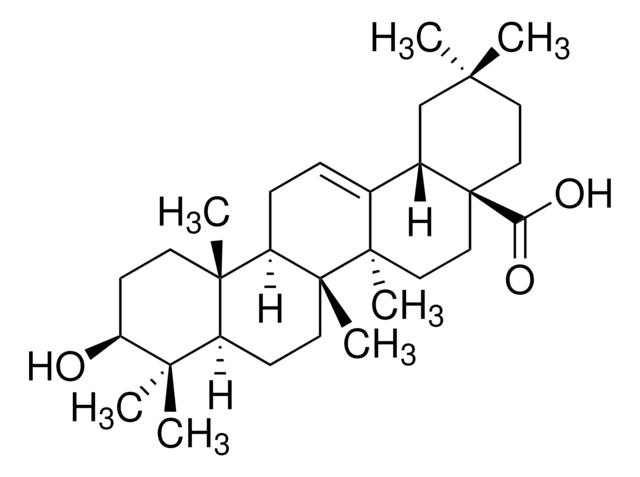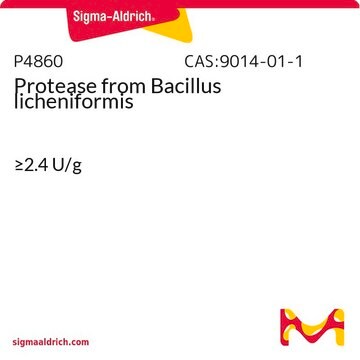C4018
Choloylglycine Hydrolase from Clostridium perfringens (C. welchii)
lyophilized powder, ≥100 units/mg protein
Synonym(s):
3α,7α,12α-Trihydroxy-5β-cholan-24-oylglycine amidohydrolase
About This Item
Recommended Products
form
lyophilized powder
Quality Level
specific activity
≥100 units/mg protein
composition
Protein, ≥50% biuret
shipped in
wet ice
storage temp.
−20°C
Looking for similar products? Visit Product Comparison Guide
Application
Biochem/physiol Actions
Unit Definition
Physical form
signalword
Danger
hcodes
pcodes
Hazard Classifications
Resp. Sens. 1
Storage Class
11 - Combustible Solids
wgk_germany
WGK 1
flash_point_f
Not applicable
flash_point_c
Not applicable
ppe
Eyeshields, Gloves, type N95 (US)
Choose from one of the most recent versions:
Certificates of Analysis (COA)
Don't see the Right Version?
If you require a particular version, you can look up a specific certificate by the Lot or Batch number.
Already Own This Product?
Find documentation for the products that you have recently purchased in the Document Library.
Our team of scientists has experience in all areas of research including Life Science, Material Science, Chemical Synthesis, Chromatography, Analytical and many others.
Contact Technical Service









